26-30 June 2023
Challenges and opportunities for journalism in the digital age
Digitalisation has changed communication in modern society, affecting how individuals seek, access, impart and diffuse information, and the media business model itself. The amount and speed of information spread coupled with the new actors that have emerged, such as large online platforms, and AI applications, constitute some of the main features of this new information ecosystem.
The challenges associated with digital transformation and AI applications are now at the centre of national and EU policy agendas, as a new reference framework is being built to ensure respect for rights and EU values in this new ecosystem. In view of this critical moment for policymaking at national and EU levels, the 11th edition of the Summer School for Journalists and Media Practitioners aims to discuss the challenges and opportunities for journalism in the new information ecosystem from legal, economic, and socio-political perspectives.
Building on the success of previous years, this edition of the Summer School will provide the opportunity for 20 journalists and media practitioners to learn about the latest developments regarding (and not only) the new EU digital framework affecting professional journalism and the media sector, as well as to share their experiences, ideas and points of view, creating thus a collaborative and critical experience for all participants. The Summer School programme is structured around keynote presentations by distinguished experts and follow-up interactive sessions.
Topics
- The new digital regulatory framework and how it affects journalism and the media sector at the EU level: the European Media Freedom Act, AVMS, DSA; Code of Practice on Disinformation, AI Act.
- Digital transformation and new business models in the media sector
- Advertising revenues and the power of consumer data
- Digital communication and the formation of public opinion: the increasing power of very large online platforms
- AI and Journalism
- Successfully applying for EU funds for journalism
Learning objectives
Shared knowledge of common European journalistic professional rights and rules; up-to-date overview of the legislative changes affecting the media ecosystem and legal principles governing content online; strategies for the development of new business models in journalism; newest trends in the journalistic practice, analysis of the state of play of pluralism and freedom in the digital media environment; interactive session proceedings; facilitating networking among participants and among participants and speakers.
A Certificate will be awarded to participants who successfully complete the training course.
This year, participants in the Summer School will also have the opportunity to apply for a fellowship at the Osservatorio Balcani Caucaso Transeuropa (OBCT). The fellowship provides an opportunity to gain first-hand experience with the unique nature of OBCT and its multi-sectoral participatory strategy that combines online journalism, research, training, knowledge dissemination and policy advice, with a strong focus on the impact of civil society in the field of media freedom and the EU enlargement policies: more information on the fellowship
Who can apply?
The Summer School is open to early and mid-career journalists and other stakeholders in the news industry. Our aim is to gather participants from a variety of countries and backgrounds; however, kindly note that there are ceilings for travel reimbursements. The CMPF will make a selection of participants based on the information provided in the application form.
Scholarships
We offer up to twenty (20) scholarships that cover travel expenses (up to 350 EUR), accommodation for 5 nights, tuition fees, all course materials, access to the EUI library, Wi-Fi access at the EUI, social activities, lunches and coffee breaks on lecture days.
The scholarships are awarded by application only. Scholarships are not intended for participants who can receive funds from their own institutions.
The selection will take into account the candidate’s professional profile, language skills and additional competencies, such as having an international profile, work experience, certificates and other achievements.
Please note that the CMPF cannot assist the selected participants with the Visa application process or expenses for travel documents.
Application deadline: 19 March 2023
Selected candidates will be contacted starting from 31 March 2023
The working language of the Summer School is English.
Confirmed speakers
Confirmed speakers are added on a rolling basis
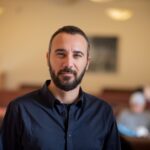
Dimitri Bettoni
Dimitri is a researcher and project coordinator for OBC Transeuropa and the Dublin City University. He is a PhD candidate in journalism, security and surveillance, and his works focuses mainly on the intersection between journalism and the digital world. In Turkey, he worked as a correspondent for OBCT, the Italian daily newspaper Il Manifesto and Atlante, the online magazine of the Treccani encyclopedic institute. He is a founding member of the Foreign Media Association in Turkey.

Sally Broughton Micova
Sally Broughton Micova is Associate Professor in Communications Policy and Politics at the University of East Anglia and member of its Centre for Competition Policy. She is also an Academic Co-Director at the Centre for Regulation in Europe (CERRE), and a Visiting Professor at the Institute of Communication Studies in North Macedonia.
She is an expert in media regulation and online platform policy. She is currently working on the intersection of fundamental rights and notions of harm and risk, including issues related to media pluralism and diversity. Her previous research has focused on audiovisual media services, advertising ecosystems, and public service media. She regularly serves as an expert for the Council of Europe’s media programmes and has contributed to research projects for the European Commission. Before entering academia, she worked for over a decade in international organisations in Southeast Europe.
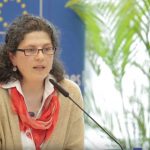
Elda Brogi
Elda Brogi is Part-time Professor at the European University Institute and Scientific Coordinator of the Centre for Media Pluralism and Media Freedom. Member of EDMO, European Digital Media Observatory, and former member of EDMO Executive Board. Her main interests span Constitutional, European, Media and Internet law.
Elda Brogi has a long-standing experience as a member of the expert committees of the Council of Europe. She is currently a member of the Committee of experts on increasing resilience of the media (MSI-RES). In 2022, she joined the Research Policy Network on Media Plurality of the Centre for Economic Policy Research (CEPR).

Roberta Carlini
Roberta joined the Centre for Media Pluralism and Media Freedom (CMPF), based at the Schuman Centre of the European University Institute, after a career as a journalist specialised in economic and social issues.
Her research in media studies focuses on the economic dimension of media pluralism and media freedom. At CMPF Roberta contributes to the project “Monitoring media pluralism in the digital era” (Media Pluralism Monitor), where she is in charge of the Market Plurality area. She co-authors the national report of MPM for Italy. In 2022 she contributed to a study on Media plurality and diversity online, co-authoring the chapter on the online advertising market. She is a member of the Centre for a Digital Society, based at the Robert Schuman Centre.
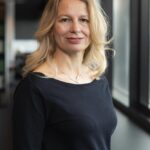
Natali Helberger
Natali is Distinguished University Professor of Law and Digital Technology with a special focus on AI at the University of Amsterdam and affiliated with the Institute for Information Law (IViR), one of the leading information law institutes worldwide. Her research over the past five years has focused on how AI and ADS are transforming society and their implications for law and governance. Together with Claes de Vreese, Helberger founded the Research Priority Area Information, Communication, and the Data Society (www.uva-icds.net) at the University of Amsterdam, which has pioneered methods to study the societal impact of digital technologies and shaped the international discussion on filter bubbles, platform governance, data-driven communication, and political micro-targeting. She is one of the founders of Human(e) AI (www.humane-ai.nl), a university-wide research program and hub for researchers from the social sciences, humanities, and computer science to advance a societal perspective on AI, and iniator of the Humane AI cross-faculty course. At the Faculty of Law of the University of Amsterdam, Helberger is also one of the founders and leaders of the Digital Transformation Initiative to stimulate research into legal aspects of AI across the different fields of law and train new talent. Since 2021, Helberger is also the Director of the AI, Media & Democracy Lab, and since 2022 the Scientific Director of the Algosoc (Public Values in the Algorithmic Society) Gravitation Consortium. An important focus of the Algosoc program is to mentor and train a next generation of interdisciplinary researchers.
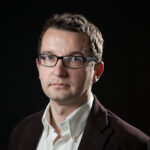
Marko Milosavljevic
Marko Milosavljevic was Chair of Department of Journalism from 2007 to 2011, chairman of the Expert commission for Pluralisation of Media at Slovenian Ministry of Culture from 2009-2010, chairman of the Expert commission for radio and television programmes at the Slovenian Ministry of Culture from 2002-2004, and a member of National Committee for Information Society since 2010. He conducted research for organisations such as Open Society Institute London, EPRA, Hans Bredow Institute Hamburg, European Journalism Centre Maastricht, Donau-Universitat am Krems, Media Centre Sarajevo, Serbian Ministry for Higher Education, and others. He was an evaluator of the South-Eastern European Network for Professionalisation of Media (SEENPM) for Slovenia, Croatia and Bosnia and Herzegovina. Marko Milosavljevic has worked on national, regional and comparative research on a number of issues, including public broadcasting, digital transition, digital business models, OTT economic potential in Central Europe, development of television services, ownership and transparency of media, including pluralism indicators. He consulted and conducted research for a number of regional media companies, including Pro Plus (CME), Norkring, Finance (Bonnier), Adria Media, TS Media, Slovenian Telekom, and others.

Iva Nenadić
Iva Nenadić, PhD in Communication Science, studies media pluralism in the context of content curation, ranking and moderation policies of online platforms, democratic implications such policies may have, and related regulatory interventions. At CMPF, she coordinates and supervises the implementation of the Media Pluralism Monitor in the area of Political Independence. She also takes part in the European Digital Media Observatory, where she conducts relevant research and analysis of policies designed to respond to disinformation challenges. At the Faculty of Political Science of Zagreb University, Iva teaches courses in media policy, and computational propaganda.
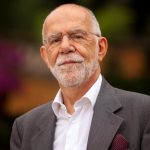
Pier Luigi Parcu
Pier Luigi Parcu is Part-time Professor at the European University Institute (EUI) since 2010. He is currently the Director of the Centre for a Digital Society and of the Centre for Media Pluralism and Media Freedom.
Professor Parcu’s research in the field of media focuses on the democratic and economic challenges associated with digital platforms, part of his broader interest in innovation dynamics in the digital economy and in emerging technologies. He also studies the effects of ownership concentration and internal governance of the media enterprise on pluralism and freedom of expression.
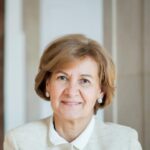
Teresa Ribeiro
Teresa Ribeiro is the fifth Representative on Freedom of the Media at OSCE. She has vast political, diplomatic, human rights and media experience.
Prior to this position, she was Secretary of State of Foreign Affairs and Cooperation at the Ministry of Foreign Affairs of Portugal, while serving as President of the National Commission for Human Rights.
She was also Secretary of State for European Affairs at the Ministry of Foreign Affairs of Portugal and Deputy Secretary General at the Union for the Mediterranean, positions that gave her extensive experience in dealing with the EU institutions and Member States, as well as with its close neighbourhood.
Throughout her career, Teresa Ribeiro has held different positions in media, both in Portugal and in multilateral organizations, such as President of the Institute of the Media of Portugal, President of the Steering Committee on Mass Media of the Council of Europe, and also Co-founder and first elected President of the Executive Board of Obercom – Media Observatory.
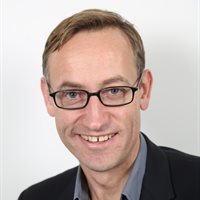
Damian Tambini
Dr Damian Tambini is Distinguished Policy Fellow in the Department of Media and Communications at LSE, where he also serves as Programme Director for the MSc Media and Communications (Governance).
Dr Tambini is an expert in media and communications regulation and policy, and active in policymaking as well as academic research. He is frequently called to give evidence to parliamentary committees and provide formal and informal policy advice to government.
Dr Tambini’s research interests include media and telecommunications policy and democratic communication. He is the author of many articles on media and communications regulation and policy and author/ editor of several books. He Co-Edited ‘Digital Dominance: The Power of Google, Amazon, Facebook and Apple.’ (Oxford University Press 2018). He was the inaugural Director of the Media Policy Project.
